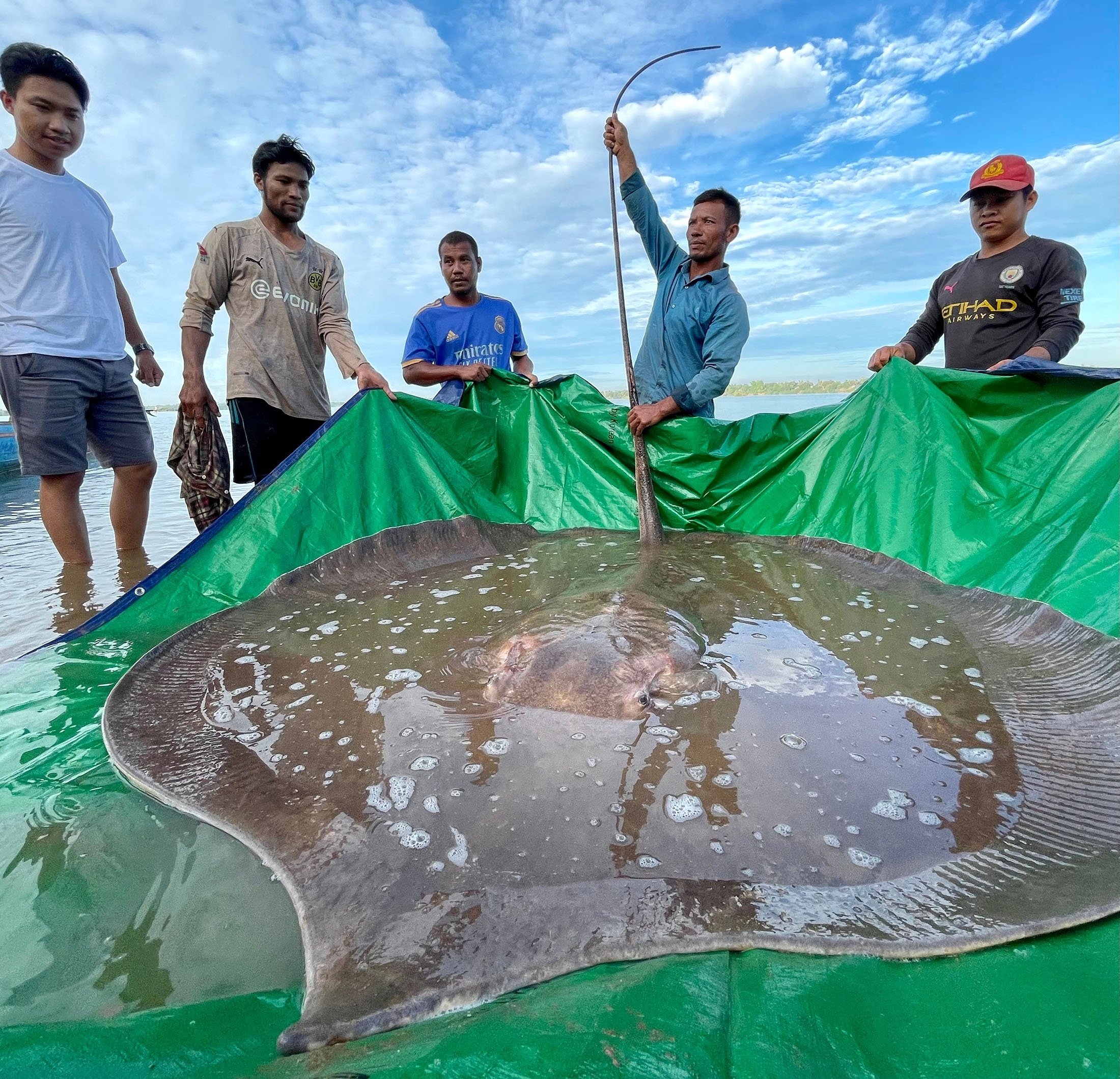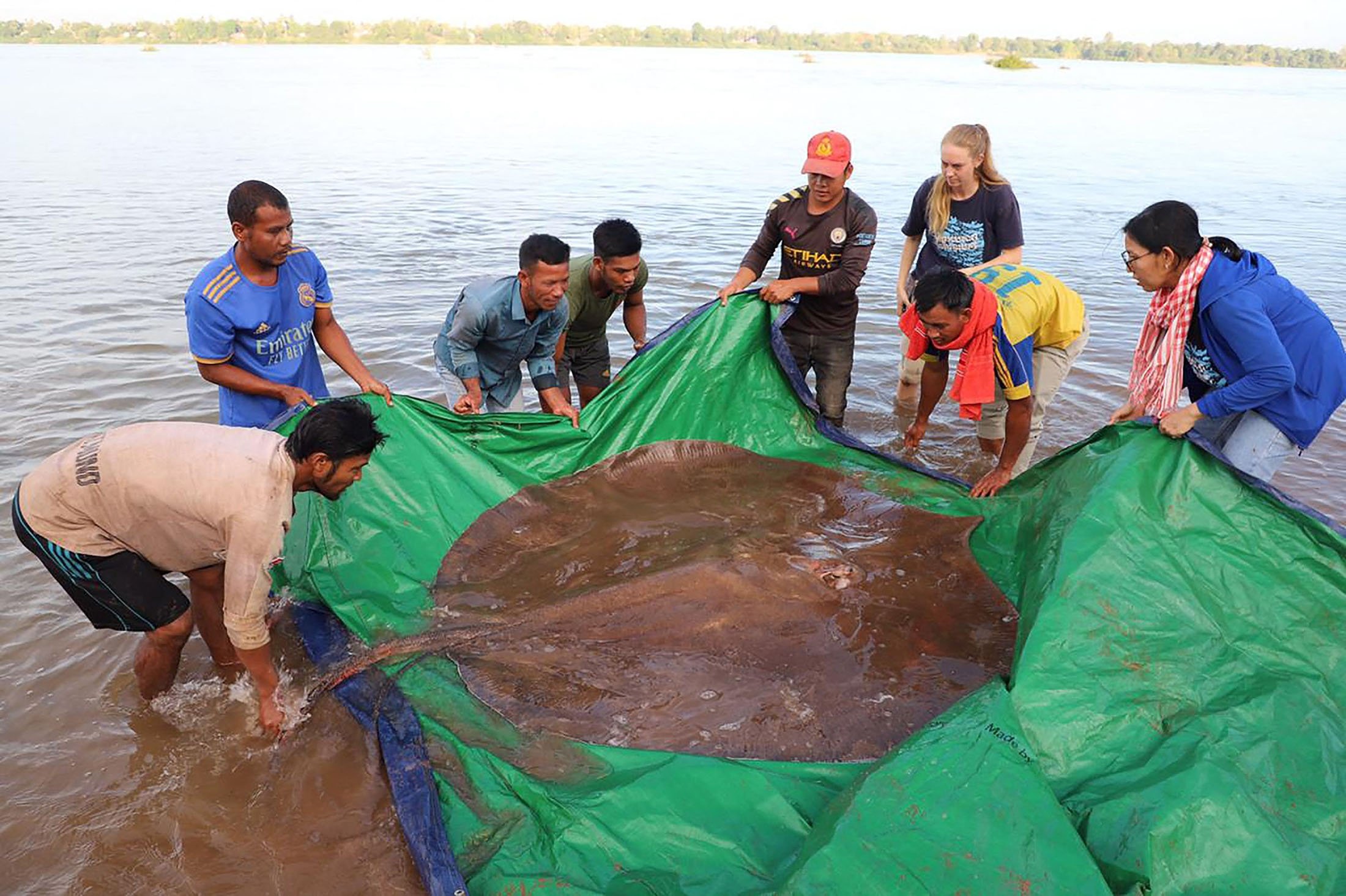© Turkuvaz Haberleşme ve Yayıncılık 2026
Imagine the shock on the faces of Cambodian fishermen when they pulled out of the water a 4-meter-long (13-feet-long) giant freshwater stingray weighing 180 kilograms (396 pounds), all by mistake as they did not mean to hook the endangered animal on the Mekong River, scientists said Wednesday.
The female leviathan, one of Southeast Asia's largest and rarest species of fish, was caught by accident last week in Stung Treng province when it swallowed a smaller fish that had taken a baited hook.

An international team of experts on the U.S.-funded Wonders of the Mekong project worked with the fishermen to unhook the ray before weighing and measuring it and returning it unharmed to the river.
The giant Mekong is a crucial habitat for a vast array of species large and small, but project leader Zeb Hogan, a fish biologist from the University of Nevada, said the river's underwater ecosystem was poorly understood.
"They are unseen worlds, underappreciated and out of sight," he said in a statement issued by his university.
More than 1,000 fish species call the Mekong home and the stingray is not the only giant lurking in the muddy waters – the giant catfish and giant barb also reach up to 3 meters (9.84 feet) long and 270 kilograms (595 pounds) in weight.
The study group said in the statement that the remote location where the ray was caught has pools up to 80 meters deep and could harbor even bigger specimens.

But they also warned that underwater video footage showed plastic waste even in the deepest stretches of the Mekong, along with "ghost nets" – abandoned by fishers but still able to snare fish.
Environmentalists have long voiced concerns about dam building along the Mekong River that will destroy fish stocks.
The famous waterway starts in China and twists south through parts of Thailand, Laos, Myanmar, Cambodia and Vietnam, feeding 60 million people through its basin and tributaries.
